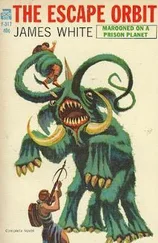James White - The Eighteen Christian Centuries
Здесь есть возможность читать онлайн «James White - The Eighteen Christian Centuries» — ознакомительный отрывок электронной книги совершенно бесплатно, а после прочтения отрывка купить полную версию. В некоторых случаях можно слушать аудио, скачать через торрент в формате fb2 и присутствует краткое содержание. Жанр: foreign_prose, История, foreign_edu, foreign_antique, на английском языке. Описание произведения, (предисловие) а так же отзывы посетителей доступны на портале библиотеки ЛибКат.
- Название:The Eighteen Christian Centuries
- Автор:
- Жанр:
- Год:неизвестен
- ISBN:нет данных
- Рейтинг книги:4 / 5. Голосов: 1
-
Избранное:Добавить в избранное
- Отзывы:
-
Ваша оценка:
- 80
- 1
- 2
- 3
- 4
- 5
The Eighteen Christian Centuries: краткое содержание, описание и аннотация
Предлагаем к чтению аннотацию, описание, краткое содержание или предисловие (зависит от того, что написал сам автор книги «The Eighteen Christian Centuries»). Если вы не нашли необходимую информацию о книге — напишите в комментариях, мы постараемся отыскать её.
The Eighteen Christian Centuries — читать онлайн ознакомительный отрывок
Ниже представлен текст книги, разбитый по страницам. Система сохранения места последней прочитанной страницы, позволяет с удобством читать онлайн бесплатно книгу «The Eighteen Christian Centuries», без необходимости каждый раз заново искать на чём Вы остановились. Поставьте закладку, и сможете в любой момент перейти на страницу, на которой закончили чтение.
Интервал:
Закладка:
It is difficult to gather a true idea of this first of the Christian emperors from the historians of after-times. The accounts of him by contemporary writers are equally conflicting. The favourers of the old superstition describe him as a monster of perfidy and cruelty. The Church, raised to supremacy by his favour, sees nothing in him but the greatest of men—the seer of visions, the visible favourite of the Almighty, and the predestined overthrower of the powers of evil. The easy credulity of an emancipated people believed whatever the flattery of the courtiers invented. His mother Helena made a journey to Jerusalem, and was rewarded for the pious pilgrimage by the discovery of the True Cross. Chapels and altars were raised upon all the places famous in Christian story; relics were collected from all quarters, and we are early led to fear that the simplicity of the gospel is endangered by its approach to the throne, and that Constantine’s object was rather to raise and strengthen a hierarchy of ecclesiastical supporters than to give full scope to the doctrine of truth. But not the less wonderful, not the less by the divine appointment, was this unhoped-for triumph of Christianity, that its advancement formed part of the ambitious scheme of a worldly and unprincipled conqueror. Rather it may be taken as one among the thousand proofs with which history presents us, that the greatest blessings to mankind are produced irrespective of the character or qualities of the apparent author. A warrior is raised in the desert when required to be let loose upon a worn-out society as the scourge of God; a blood-stained soldier is placed on the throne of the world when the time has come for the earthly predominance of the gospel. But neither is Attila to be blamed nor Constantine to be praised.
It was the spirit of his system of government to form every society on a strictly monarchical model. There was everywhere introduced a clearly-defined subordination of ranks and dignities. Diocletian, we saw, surrounded the throne with a state and ceremony which kept the imperial person sacred from the common gaze. Constantine perfected his work by establishing a titled nobility, who were to stand between the throne and the people, giving dignity to the one, and impressing fresh awe upon the other. In all previous ages it had been the office that gave importance to the man. To be a member of the Senate was a mark of distinction; a long descent from a great historic name was looked on with respect; and the heroic deeds of the thousand years of Roman struggle had founded an aristocracy which owed its high position either to personal actions or hereditary claims. But now that the emperors had so long concentrated in themselves all the great offices of the State—now that the bad rulers of the first century had degraded the Senate by filling it with their creatures, the good rulers of the second century had made it merely the recorder of their decrees, and the anarchy of the third century had changed or obliterated its functions altogether—there was no way left to the ambitious Roman to distinguish himself except by the favour of the emperor. The throne became, as it has since continued in all strictly monarchical countries, the fountain of honour. It was not the people who could name a man to the consulship or appoint him to the command of an army. It was not even in the power of the emperor to find offices of dignity for all whom he wished to advance. So a method was discovered by which vanity or friendship could be gratified, and employment be reserved for the deserving at the same time. Instead of endangering an expedition against the Parthians by intrusting it to a rich and powerful courtier who desired to have the rank of general, the emperor simply named him Nobilissimus, or Patricius, or Illustris, and the gratified favourite, the “most noble,” the “patrician,” or the “illustrious,” took place with the highest officers of the State. A certain title gave him equal rank with the Senator, the judge, or the consul. The diversity of these honorary distinctions became very great. There were the clarissimi—the perfectissimi—and the egregii—bearing the same relative dignity in the court-guide of the fourth century, as the dukes, marquises, earls, and viscounts of the peerage-books of the present day. But so much did all distinction flow from proximity to the throne, that all these high-sounding names owed their value to the fact of their being bestowed on the associates of the sovereign. The word Count, which is still the title borne by foreign nobles, comes from the Latin word which means “companion.” There was a Comes, or Companion, of the Sacred Couch, or lord chamberlain—the Companion of the Imperial Service, or lord high steward—a Companion of the Imperial Stables, or lord high constable; through all these dignitaries, step above step, the glorious ascent extended, till it ended in the Companion of Private Affairs, or confidential secretary. At the head of all, sacred and unapproachable, stood the embodied Power of the Roman world, who, as he had given titles to all the magnates of his court, heaped also a great many on himself. His principal appellation, however, was not as in our degenerate days “Majesty,” whether “Most Catholic,” “Most Christian,” or “Most Orthodox,” but consisted in the rather ambitious attribute—eternity. “Your Eternity” was the phrase addressed to some miserable individual whose reign was ended in a month. It was proposed by this division of the Roman aristocracy to furnish the empire with a body for show and a body for use; the latter consisting of the real generals of the armies and administrators of the provinces. And with this view the two were kept distinct; but military discipline suffered by this partition. The generals became discontented when they saw wealth and dignities heaped upon the titular nobles of the court; and to prevent the danger arising from ill will among the legions on the frontier, the emperor withdrew the best of his soldiers from the posts where they kept the barbarians in check, and entirely destroyed their military spirit by separating them into small bodies and stationing them in towns. This exposed the empire to the foreign foes who still menaced it from the other side of the boundary, and gave fresh settlements in the heart of the country to the thousands of barbarian youth who had taken service with the eagles. In every legion there was a considerable proportion of this foreign element: in every district of the empire, therefore, there were now settled the advanced guards of the unavoidable invasion. Men with barbaric names, which the Romans could not pronounce, walked about Roman towns dressed in Roman uniforms and clothed with Roman titles. There were consulars and patricians in Ravenna and Naples, whose fathers had danced the war-dance of defiance when beginning their march from the Vistula and the Carpathian range.
All these troops must be supported—all these dignitaries maintained in luxury. How was this done? The ordinary revenue of the empire in the time of Constantine has been computed at forty millions of our money a year. Not a very large amount when you consider the number of the population; but this is the sum which reached the treasury. The gross amount must have been far larger, and an ingenious machinery was invented by which the tax was rigorously collected; and this machinery, by a ludicrous perversion of terms, was made to include one of the most numerous classes of the artificial nobility created by the imperial will. In all the towns of the empire some little remains were still to be found of the ancient municipal government, of which practically they had long been deprived. There were nominal magistrates still; and among these the Curials held a distinguished rank. They were the men who, in the days of freedom, had filled the civic dignities of their native city—the aldermen, we should perhaps call them, or, more nearly, the justices of the peace. They were now ranked with the peerage, but with certain duties attached to their elevation which few can have regarded in the light of privilege or favour. To qualify them for rank, they were bound to be in possession of a certain amount of land. They were, therefore, a territorial aristocracy, and never was any territorial aristocracy more constantly under the consideration of the government. It was the duty of the curials to distribute the tax-papers in their district; but, in addition to this, it was unfortunately their duty to see that the sum assessed on the town and neighbourhood was paid up to the last penny. When there was any deficiency, was the emperor to suffer? Were the nobilissimi, the patricii, the egregii, to lose their salaries? Oh, no! As long as the now ennobled curial retained an acre of his estate, or could raise a mortgage on his house, the full amount was extracted. The tax went up to Rome, and the curial, if there had been a poor’s house in those days, would have gone into it—for he was stripped of all. His farm was seized, his cattle were escheated; and when the defalcation was very great, himself, his wife and children were led into the market and sold as slaves. Nothing so rapidly destroyed what might have been the germ of a middle class as this legalized spoliation of the smaller landholders. Below this rank there was absolutely nothing left of the citizenship of ancient times. Artificers and workmen formed themselves into companies; but the trades were exercised principally by slaves for the benefit of their owners. These slaves formed now by far the greatest part of the Roman population, and though their lot had gradually become softened as their numbers increased, and the domestic bondsman had little to complain of except the greatest of all sorrows, the loss of freedom, the position of the rural labourers was still very bad. There were some of them slaves in every sense of the word—mere chattels, which were not so valuable as horse or dog. But the fate of others was so far mitigated that they could not be sold separate from their family—that they could not be sold except along with the land; and at last glimpses appear of a sort of rent paid for certain portions of the lord’s estate in full of all other requirements. But this process had again to be gone through when many centuries had elapsed, and a new state of society had been fully established, and it will be sufficient to remind you that in the fourth century, to which we are now come, the Roman world consisted of a monarchy where all the greatness and magnificence of the empire were concentrated on the emperor and his court; that the monarchical system was rapidly pervading the Church; and that below these two distinct but connected powers there was no people, properly so called—the country was oppressed and ruined, and the ancient dignity of Rome transplanted to new and foreign quarters, at the sacrifice of all its oldest and most elevating associations. The half-depopulated city of Romulus and the Kings—of the Consuls and Augustus, looked with ill-disguised hatred and contempt on the modern rival which denied her the name of Capital, and while fresh from the builder’s hand, robbed her of the name of the Eternal City. We shall see great events spring from this jealousy of the two towns. In the mean time, we shall finish our view of Constantine by recording the greatness of his military skill, and merely protest against the enrolment in the list of saints of a man who filled his family circle with blood—who murdered his wife, his son, and his nephew, encouraged the contending factions of the now disputatious Church—gave a fallacious support to the orthodox Athanasius, and died after a superstitious baptism at the hands of the heretical Arius. |A.D. 337.|An unbiassed judgment must pronounce him a great politician, who played with both parties as his tools, a Christian from expediency and not from conviction. It is a pity that the subserviency of the Greek communion has placed him in the number of its holy witnesses, for we are told by a historian that when the emperor, after the dreadful crimes he had perpetrated, applied at the heathen shrines for expiatory rites, the priests of the false gods had truly answered, “there are no purifications for such deeds as these.” But nothing could be refused to the benefactor of the Church. The great ecclesiastical council of this age, (325), consisting of three hundred and eighteen bishops, and presided over by Constantine in person, gave the Nicene Creed as the result of their labours—a creed which is still the symbol of Christendom, but which consists more of a condemnation of the heresies which were then in the ascendant, than in the plain enunciation of the Christian faith. A layman, we are told, an auditor of the learned debates in this great assembly, a man of clear and simple common sense, met some of the disputants, and addressed them in these words:—“Arguers! Christ and his apostles delivered to us, not the art of disputation, nor empty eloquence, but a plain and simple rule which is maintained by faith and good works.” The disputants, we are further told, were so struck with this undeniable truth that they acknowledged their error at once.
Читать дальшеИнтервал:
Закладка:
Похожие книги на «The Eighteen Christian Centuries»
Представляем Вашему вниманию похожие книги на «The Eighteen Christian Centuries» списком для выбора. Мы отобрали схожую по названию и смыслу литературу в надежде предоставить читателям больше вариантов отыскать новые, интересные, ещё непрочитанные произведения.
Обсуждение, отзывы о книге «The Eighteen Christian Centuries» и просто собственные мнения читателей. Оставьте ваши комментарии, напишите, что Вы думаете о произведении, его смысле или главных героях. Укажите что конкретно понравилось, а что нет, и почему Вы так считаете.












